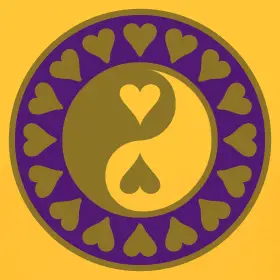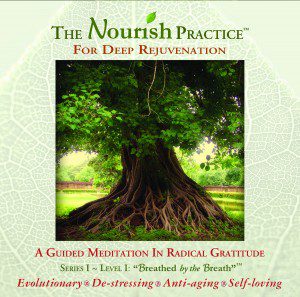Contributing Writer for Wake Up World
If you missed Part I, you can read it here.
When we can rest in the seats of our bodies we are confronted with the challenge of discovering pleasure and fulfillment by means other than fantastic belief systems—specifically, may I suggest, by amplifying and beautifying the ordinary aspects of life. We do this, however, not so much by changing outer reality, but by unwinding what pains us about reality, our ordinary lives. As a result, we find more richness in solitude. We find more succor in meaningful friendships. We discover more peace, wisdom, amusement, and bewilderment in nature. We find fulfillment in exercising and deepening our creative capacities. We find pleasure, even ecstasy, in taking care of our physical health, even as we realize our bodies as a locus for the more intangible riches of spiritual life. We find peace in the clarity of our hearts. We find what we believe to be “God” and grace right here, in the transformation of our difficult emotions. We find emotional release in the welcoming of sadness. We find perfection in the truth (supported by real evidence) of our intuitions, in an abiding “yes” to all that befalls and uplifts us. We find what we imagine as heaven right here in an increased focus on the ordinary, which becomes extraordinary when we carve out more room in our hearts to be filled and moved by life.
[pro_ad_display_adzone id=”110028″]
The paradox is that the more we embrace what breaks us open, the more we deeply appreciate life’s simple pleasures and beauties. This is a path for radical inner and outer sustainability because we are filled with so little, which, with a deep and sensitive heart, can be so much. We can descend into this deep focus on the ordinary world and the everyday good and not so pleasant and random facts of life when we cease to pursue make-believe and band-aid remedies for our pains and challenges—the very superstitious and fallacious constructs of religion and fantastical spirituality.
Instead of believing the highly unlikely possibility that we are reunited with our lost loved ones in heaven, a more realistic, natural, and integral spiritual response to the sadness and devastation that follows loss is to mourn. The grief of mourning is what I call “the great dissolver of pain.” It is a beneficent acid to the concretions of suffering that pervade and sabotage our hearts’ fullness. Moreover, grieving one thing often leads us to other griefs in our hearts. This is a blessing because it allows us to contact our sequestered hurts. It is also precisely why many avoid grief at all costs—to avoid these hidden hurts.
If we want to love, we should revel in grief, when it arrives, as it always will, because this world is temporal and our grounded hearts, if we allow them to be, are always in love with this world. No one escapes loss, and if one could, he would be less, for the blessings grief bestows would be lost on him: depth, care, compassion, groundedness, wholeness, appreciation, and ultimately the capacity to love more fully than if only mildly visited by the pain of loss.
If we remove the many beliefs and wishes that perilously and capriciously prop up our lives and keep our hearts floating above the seemingly scary nebulae of life’s underbelly, we would have to sink into a deep communion with the raw facts of life. If, on the other hand, we were to choose to say no to the fantastic, to the superficial, to the blatantly false precepts that prevent us from sinking into the frank reality of our hearts, into our bodies and ordinary lives, into the good Earth, into a care for one another, this could be the most empowering, courageous move in all our lives. I am not saying we should not pursue pleasure; we should. But the danger is when pleasure in moderation (easily) becomes an excessive avoidance and denial of what does not feel good.
What is excessive? Excessive is when pleasure takes us away from (better, when we give ourselves over to) dealing with our difficult emotions and facing the not so pleasant aspects of life to the degree that we lose track of what specifically pains us. Pleasure is excessive if it prevents us from the experience of a richer transformative enrichment—that of abiding in non-pleasure until we are transmuted into fulfillment. Indeed, it is a question of degree—the degree to which we ignore what makes us deeper, richer people in favor of staying afloat for the misperception of fear-based survival instincts (and no, fear is not inherently bad!). The result is that we lose the sacred death that would bring us more fully alive than we might ever have imagined.
We all have enough pain from childhood to fill our cups of transformation for years to come. Since the pains of childhood—collectively the loss of love in its many forms—is essentially inevitable, then far from being made in the image and likeness of a perfect God, perhaps it is more accurate to say that we are born into an imperfect life, and our challenge as mature adults is to make perfect sense of life’s shortcomings by way of our courage to undertake the hero’s journey of radical transformation as a genuine rite of passage into adulthood. In the spirit of negation, this journey is less the adopting of what we think it is to be “adult,” as it is the wholehearted transformation of childhood ideas and perspectives, including magical thinking.
So, if we see religion and all manner of unilaterally positive, non-paradoxical and therefore non-transformational spirituality, as a means to escape the difficult experiences of life, the courageous question is how to make ordinary life, with all its foibles and failures, as good as what we imagine it to be in an after-life, in a proverbially perfect, make-believe heaven. Even if there is an after-life, for which we currently have no good proof, the transformation of our heartaches is still a best choice for living because it allows us to make the most of this life. If we also get to live a perfect life in heaven, then we will have lived doubly richly!
The problem of leaving reality for non-reality is that in the process we lose the experience of sanctifying ordinary life. We miss what is beautiful here and now. This life on Earth, and for the foreseeable future, is all we really know for sure. Yet so many choose to sacrifice present grounded reality, our own health and that of nature, for what we do not know to be real. This is largely because life is also painful. On the other hand, if we embrace and undergo the transformation of our hearts we do not miss out on what we do know, what already is beautiful. And we get to turn what we fear most—emotional pain and its associated fear of dying—into beauty. Now, how’s that for a spiritual path?
Just this weekend while reading from a book a friend of mine has, titled When the Heart Waits, I was happy to find support for this radical notion of following pain as a spiritual path. I rarely ever hear support for this way of inner growth, fulfillment, and unconditional love to grow our conditional love, but here it was:
I tried to suggest to the college student before me that to be spiritual is to confront our pain, rather than make an enemy out of it. When Jesus told us to love our enemies, I suspect that he was talking about our inner enemies too. He knew that love was the only means by which to transform them.
— Sue Monk Kidd
So, what if we forget projections and wishful thinking for future salvation? What if it is just a denial of the here and now, especially the challenging here and now? Perhaps we could more appreciate and protect nature, especially as that which we know sustains our lives, yet remains veiled from our restless minds. The deeper into projections we live, the messier become our ordinary lives and the more we need to escape into non-reality. On the other hand, appreciating what is both difficult and beautiful here and now only makes us more colorfully human, as we turn what is painful into a comprehensive vitality that emanates from us, rain or shine, through our work, presence, respect, grounded compassion, wisdom, and the richness of our person.
If evidence were the manifest world today, which it is, we see the loss of the sacred in ordinary life, and its result is the degradation of the planet and the desecration of nature and our own bodies—in the Botox facelifts, in GMOs and the routine spraying of our foods with untested chemicals, in increasing nuclear disasters and threats, in our poisoning of the environment, in so many human and animal rights abuses everywhere.
Losing track of the sacred is a uniquely human endeavor, per our definition of what we choose to call sacred and what we do not. So much of what is considered worthwhile and worth saving and living for is infiltrated by New Age fluffiness as well as religious manipulation and its fear of nature and the sacred feminine. For if we all are all going to heaven why do we need to care for the Earth at all? If we are pure light already, why deal with the atrocities, the suffering of others? Earth and the recesses of our sensual body-minds are, after all, full of pain, darkness, demons, sin and none other than the domain of hell. By perpetuating this infertile, nonsensical propaganda, most religions and one-sided, light-seeking spiritual paths have greatly contributed to the stigma, the despoiling of the rich sacredness of our bodies and the planet.
It is our responsibility today to enact real transformation, to sink into our bodies, into our dark and light non-dual hearts, into the good Earth, to study and learn first-hand the difference between myth and reality, between religious and New Age fear and what is on the other side of emotional courage. Our lives and the life of the Earth depend on it. Love depends on it.
The Nourish Practice
Jack Adam Weber’s “The Nourish Practice” is an easy, guided meditation-Qi Gong practice in radical gratitude and self-love. It is an Earth-based, body-centered practice — at once physiological and mythological — that is deeply relaxing and replenishing, especially for modern-day burn-out syndrome, and requires little physical effort.
The Nourish Practice “resets your nervous system” and fosters a rich inner life. You can purchase The Nourish Practice as a CD or Digital Download here.
Previous articles by Jack Adam Weber:
- Relationships: The Costs of Staying When We Should Leave
- Sex, Love and Attachment
- Emotional Work
- Choosing a Partner – How to Avoid Relationship Suicide
- Re-Thinking Love: Why Our Hearts Must Also Be Minded
- Spirituality – Reality Check
- 11 Crucial Tips for Better Digestive Health
- Shadow Work: Becoming a Sustainable Light Worker (Part 1)
- Oneness in Action: The GMO Eradication Movement
- After the Hurricane: Lessons from the Heart of Nature
- Relationships: How They Can Make Us Happier
- Heartbreak – Loving Ourselves Through Difficult Times
About the author:
 Jack Adam Weber, L.Ac. is a Chinese medicine physician, author, celebrated poet, organic farmer, and activist for body-centered spirituality. His books, artwork, and provocative poems can be found at his website PoeticHealing.com. He is also the creator of The Nourish Practice, an Earth-based rejuvenation meditation. Weber is available by phone for medical consultations and life-coaching.
Jack Adam Weber, L.Ac. is a Chinese medicine physician, author, celebrated poet, organic farmer, and activist for body-centered spirituality. His books, artwork, and provocative poems can be found at his website PoeticHealing.com. He is also the creator of The Nourish Practice, an Earth-based rejuvenation meditation. Weber is available by phone for medical consultations and life-coaching.
You can connect with Jack Adam Weber on Facebook or by emailing [email protected].
[pro_ad_display_adzone id=”110027″]








